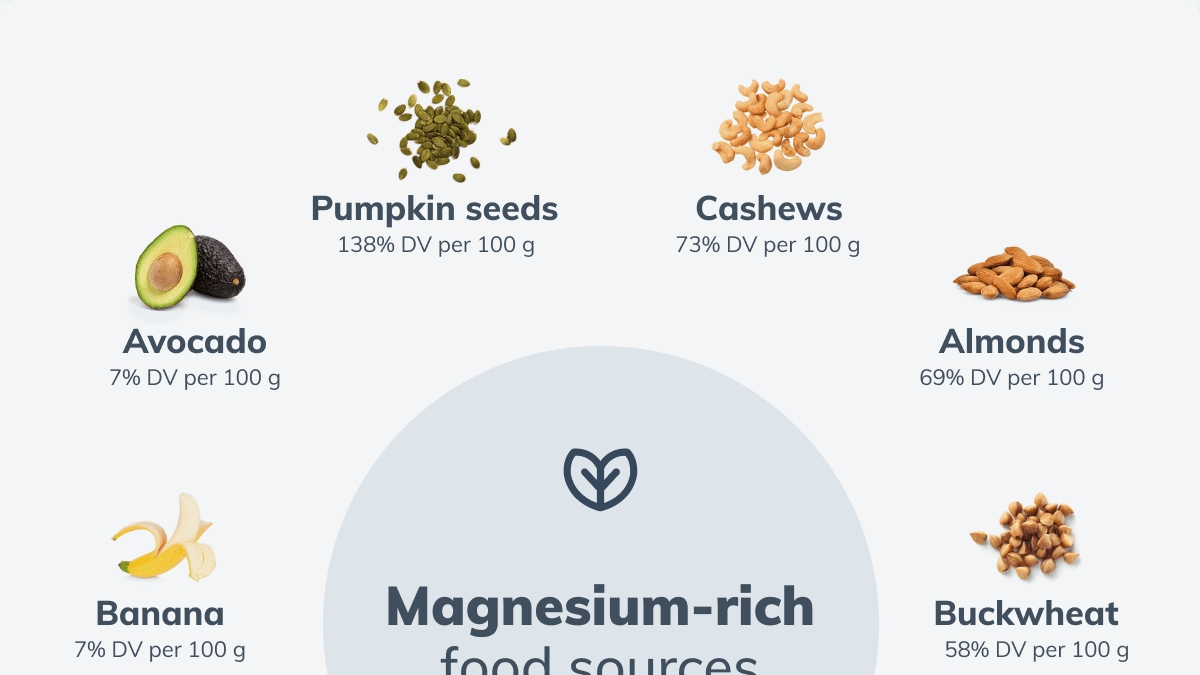
The importance of magnesium in our bodies cannot be overstated. This critical mineral is involved in over 300 chemical reactions and is essential for maintaining optimal health. Yet, our bodies do not produce magnesium on their own, making it crucial to obtain it from external sources. This article aims to provide valuable information on the best sources of magnesium, its unique benefits, and practical advice on how to incorporate it into your daily routine.
Understanding the Role of Magnesium in Our Bodies
As one of the essential minerals, magnesium plays a significant role in keeping our bodies and minds healthy. It is integral to bone health, muscle function, reducing stress and anxiety, and improving sleep quality. Furthermore, magnesium is also crucial for the proper functioning of muscles, nerves, and various bodily systems. It supports digestion, energy production, cardiovascular health, and cognitive function. Quite simply, magnesium is vital for maintaining energy and vitality.
The Different Types of Magnesium and Their Benefits
There are six different types of magnesium, each with its unique benefits. These include magnesium citrate for regular bowel movements and alleviating constipation, magnesium oxide as a laxative, magnesium glycinate for promoting relaxation and better sleep, magnesium L-threonate for potential cognitive benefits, magnesium chloride for muscle relaxation and soreness, and magnesium sulfate (Epsom Salt) for relaxation and muscle soreness relief. Each type of magnesium works synergistically with other nutrients such as calcium, potassium, and vitamin D to maintain overall health.
Sources of Magnesium
Magnesium is naturally found in a variety of foods. Green leafy vegetables, nuts, seeds, whole grains, and legumes are excellent sources of this mineral. Other sources include bananas, dairy products, meat, fish, and even chocolate. For those who cannot meet their needs through diet alone, magnesium supplements are a viable option. Supplement forms like magnesium citrate and magnesium glycinate are beneficial options.
Magnesium for Children’s Health
Magnesium isn’t just essential for adults; it’s also crucial for children’s overall health and well-being. It supports various physical and mental processes in children, including bone density and growth, brain function, muscle development, energy metabolism, and reducing inflammation. However, like adults, children can also suffer from magnesium deficiency, leading to sleep issues, bone density problems, neurological disorders, anxiety, and muscle cramping.
Precautions and Recommendations
While magnesium is generally safe to consume in most cases, it’s important to note that excessive intake can lead to side effects. Precautions should be taken in terms of dosage, interactions with medications, individual tolerance, and underlying health conditions. For adults aged 19-64, men generally need 300mg, while women need 270mg of magnesium a day, as per NHS guidelines.
With the numerous benefits and the crucial role it plays, it’s no wonder that sales of magnesium supplements have risen by 44% this year. Whether through diet or supplements, ensuring adequate intake of magnesium is essential to every process in the body, making it a vital part of maintaining a healthy lifestyle.
